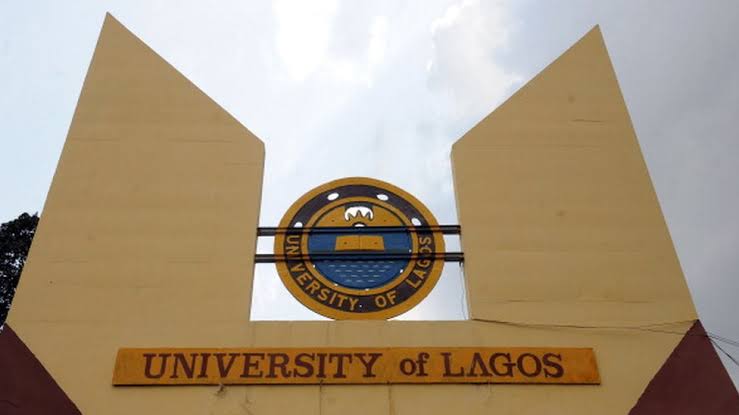The rising number of unemployed graduates in Nigeria has become one of the most pressing national challenges, stirring deep concerns among education stakeholders, policymakers, parents, and the graduates themselves. Despite the ever-increasing number of universities and higher institutions across the country, thousands of young Nigerians finish school every year only to face the harsh reality of joblessness.
In a thought-provoking commentary, education analyst Niyi Akinnaso examined the root causes of this crisis, explaining why many university graduates today are unable to secure decent employment. His assessment sheds light on a complex problem that goes beyond the usual blame on the government or the private sector.
Overproduction of Universities and Graduates
One of the central issues highlighted is the rapid proliferation of higher institutions in Nigeria. Today, the country boasts over 300 universities alongside hundreds of polytechnics, monotechnics, and colleges of education. While this expansion was initially seen as a positive step toward widening access to higher education, it has inadvertently created a system where the number of graduates far outweighs the available job opportunities.
Every year, tens of thousands of students graduate into a labour market already saturated with unemployed jobseekers. This imbalance between supply and demand worsens unemployment, with many graduates left stranded after years of academic struggle.
Collapse of Manufacturing and Industrial Opportunities
Another critical factor is the decline of Nigeria’s manufacturing and industrial sector. In past decades, industries provided a steady source of employment for graduates, especially in fields like engineering, management, and applied sciences.
However, the closure of many factories, poor electricity supply, high interest rates, insecurity, and weak infrastructure have crippled this sector. Without vibrant industries to absorb graduates, the nation is left with a surplus of skilled youths who cannot find fitting employment.
Falling Standards in Higher Education
The unemployment challenge is further aggravated by declining standards in Nigerian universities. Many institutions lack adequate lecturers, proper funding, modern equipment, and updated learning facilities. Overcrowded classrooms and deteriorating infrastructure mean students often graduate without exposure to practical training or industry-ready skills.
This has raised serious concerns about the quality of graduates being produced. Employers frequently complain that many degree holders are unemployable, not because they lack certificates, but because they lack practical competence.
Irrelevant Curriculum and Poor Career Orientation
Another issue is the disconnect between university curricula and market needs. Many graduates study outdated or irrelevant courses without proper guidance on career planning. By the time they leave school, they find that their qualifications do not match what industries are looking for.
The lack of strong career counseling units within universities also means students are left on their own to navigate career choices. This contributes to the mismatch between academic training and job market realities.
Skills Gap and Lack of Digital Competence
In today’s world, skills are just as important as certificates. Yet many Nigerian graduates leave school without strong computer literacy, digital competence, or relevant technical skills.
While young people are often active on social media, their knowledge of essential workplace tools — from data analysis software to professional communication platforms — is limited. This places them at a disadvantage in a global economy increasingly driven by technology and digital transformation.
Weak Communication and Language Proficiency
Communication remains a key employability factor, but many graduates struggle with poor command of English and weak writing or speaking skills. Since English is the official language of business and administration in Nigeria, these deficiencies create another barrier to securing white-collar jobs.
Employers have repeatedly emphasized that effective communication, teamwork, and problem-solving skills are lacking in many applicants, further reducing their chances of employment.
Proposed Solutions to Graduate Unemployment
Experts argue that addressing graduate unemployment requires multi-level reforms. Some of the solutions suggested include:
- Placing a moratorium on new universities to reduce overproduction of graduates.
- Conducting a nationwide audit of existing institutions, merging or closing those that fail to meet minimum standards.
- Revising secondary school and university curricula to prioritize practical knowledge, entrepreneurship, and 21st-century skills.
- Expanding Technical and Vocational Education and Training (TVET) programmes to equip young people with hands-on expertise.
- Improving lecturers’ welfare and remuneration, ensuring that talented educators remain committed to teaching.
- Investing heavily in infrastructure and industrial development, so industries can once again thrive and absorb graduates.
- Strengthening internship and career placement programmes to give students early exposure to workplace realities.
The Way Forward for Nigerian Graduates
While structural reforms are crucial, graduates themselves are also encouraged to adapt to the changing labour market. This includes:
- Acquiring digital and entrepreneurial skills beyond their degrees.
- Embracing vocational training or technical certifications.
- Seeking internships, apprenticeships, or volunteering opportunities to gain experience.
- Developing soft skills such as communication, teamwork, and critical thinking.
- Exploring emerging industries like renewable energy, technology, creative arts, and agribusiness.
Conclusion
The high rate of graduate unemployment in Nigeria is not simply the fault of students or employers — it is the result of systemic challenges in education, governance, and economic development. Unless urgent reforms are made to revive industries, strengthen universities, and realign curricula with modern realities, the country will continue producing graduates without jobs.
At the same time, graduates must also rise to the challenge by equipping themselves with the right skills, flexibility, and entrepreneurial mindset to thrive in a tough labour market.
Ultimately, solving this crisis requires joint efforts between government, institutions, industries, and graduates themselves. Only then can Nigeria turn its youthful population into a true engine of national growth rather than a ticking time bomb of unemployment.






